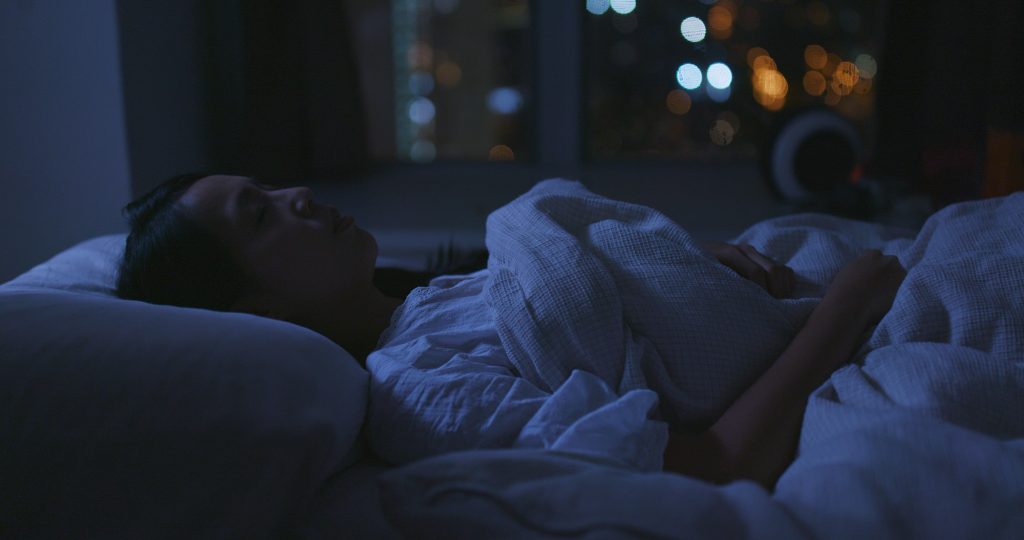All of us at some point in our lives have trouble sleeping. This can be perfectly normal. Sleep problems (also known as insomnia) are often caused by stressful situations such as the death of a loved one, a car accident, a promotion to a new job or some new change in life circumstances. This normal response to stress usually lasts for a short time, rarely longer than a week or two. However, some people have chronic problems sleeping which do not seem to go away. If you are having temporary sleep issues, there are lots of things you can do to help yourself.
Taking sleeping pills may not be the answer to your problem as they can do more harm than good. Some reasons why:
- Sedatives change nervous system activities during sleep; for example, they may reduce the normal periods of dreaming. After taking sedatives for a while and then stopping, many people report having sleep-disrupting dreams, which cause them to wake up feeling tired even after a full night’s sleep.
- The human body develops tolerance to sedatives after their repeated use. After a while, you have to take more and more sedatives to make you feel sleepy.
- A person can become psychologically dependent on sleeping preparations; if you are convinced that is the only way you can get a good night’s sleep, you will not be able to go to sleep without a drug.
How much sleep is enough?
Researchers aren’t sure exactly how much sleep adults need as this can vary from person to person. However, 7-8 hours per 24hour period seems most satisfactory. Children need more sleep than adults and the elderly need less. What is shown to be important for quality sleep is sleeping at the same time each night
Some common causes of sleep problems:
- Stress: Any abrupt change in your life – such as adjusting to college or graduate school, the end of a relationship, or serious illness – can cause stress and, possibly, sleep loss.
- Physical illness and psychological problems: Illnesses, particularly ones that cause pain, can interfere with sleep. Anxiety and depression also are common causes of disrupted sleep.
- Exercising just before going to bed. Try to keep it no closer than 3-4 hrs before bed.
- Engaging in stimulating activity just before bed, such as playing a competitive game, watching an exciting program on television or movie, or having an important discussion with a loved one.
- Have caffeine in the evening, this includes coffee, green tea, energy drinks and some herbal teas.
- Reading, watching television or any screen time. Screens emit a blue light that decreases melatonin production. This interferes with your sleep cycle
- Using alcohol to help you sleep. It actually interrupts your sleep cycle.
- Going to bed too hungry or too full.
- Taking another person’s sleeping pills.
- Taking over-the-counter sleeping pills, without your doctor’s knowledge. Tolerance can develop rapidly with these medications.
- Taking daytime naps. If you do, keep them to no more than 20 minutes, 8 hrs before bedtime.
- Commanding yourself to go to sleep. This only makes your mind and body more alert.
- Watching the clock or counting minutes; this usually causes more anxiety, which keeps you up.
- Lying in bed awake for more than 20-30 minutes. Instead, get up, go to a different room (or different part of the bedroom), participate in a quiet activity (e.g. non-excitable reading), and then return to bed when you feel sleepy. Do not turn on lights or sit in front of a bright TV or computer. Stay in a dark, quiet place. Do this as many times during the night as needed.
- Succumbing to maladaptive thoughts like: “Oh no, look how late it is, I’ll never get to sleep” or “I must have eight hours of sleep each night, if I get less than eight hours of sleep I will get sick.” Challenge your concerns and avoid catastrophizing. Remember that we cannot fully control our sleep process. Trying too hard to control it will make you more tense and more awake.
- Changing your daytime routine the next day if you didn’t sleep well. Even if you have a bad night sleep and are tired it is important that you try to keep your daytime activities the same as you had planned. That is, don’t avoid activities or stay in bed late because you feel tired. This can reinforce the insomnia.
- Increasing caffeine intake the next day, this can keep you up again the following night.
What you can do to improve sleep:
- Go to bed at the same time each day.
- Get up from bed at the same time each day. Try to maintain something close to this on weekends.
- Get regular exercise each day, preferably in the morning. There is good evidence that regular exercise improves restful sleep. This includes stretching and aerobic exercise.
- Get regular exposure to outdoor light or bright lights, especially in the late afternoon.
- Keep the temperature in your bedroom comfortable.
- Keep the bedroom quiet when sleeping.
- Keep the bedroom dark enough to facilitate sleep.
- Use your bed only for sleep (and sexual activity). This will help you associate your bed with sleep, not with other activities like paying bills, talking on the phone, watching TV.
- Establish a regular, relaxing bedtime routine. Relaxing rituals prior to bedtime may include a warm bath or shower, aromatherapy, reading, or listening to soothing music.
- Use a relaxation exercise just before going to sleep or use relaxing imagery. Even if you don’t fall asleep, this will allow your body to rest and feel relaxed.
- Keep your feet and hands warm. Wear warm socks to bed.
- Designate another time to write down problems & possible solutions in the late afternoon or early evening, not close to bedtime. Do not dwell on any one thought or idea—merely jot something down and put the idea aside
- Use blue light blocking glasses when using screens (laptop, phones etc) before sleep. Computer screen protectors can be purchased. Most mobile phones have a setting that changes to night mode, look in settings- display and brightness
The Wave
A progressive relaxation exercise for falling asleep
In this exercise you will be tensing your entire body, from your toes to your forehead, and then relaxing. This exercise will help you rid your body of tension that may be interfering with your sleep.
- Lay in bed and begin by paying attention to your breathing. Breathe deeply and concentrate on the words, in and out. As you breathe in, say in; as you breathe out, say out. Saying these words as you breathe can help keep your mind on deep breathing. If other thoughts come into your mind, don’t get upset, simply go back to the words in and out. The thoughts will pass away.
- Imagine a warm wave touching your toes.
- Curl your toes as hard as you can.
- Curl the arch of your foot, keeping your toes curled.
- Tense your ankle. Do not relax your toes or arch but keep adding tense body parts.
- Tense your calves, holding your foot tense.
- Pull in your stomach and hold it.
- Pull in your diaphragm and hold it.
- Holding your feet, legs and torso tense, tense your back and chest and shoulders.
- Tense your arms and make a fist.
- Tense your neck.
- Press your eyelids and tense your forehead, frowning as hard as you can. Tense your scalp.
- Hold the tension from head to foot for 5 seconds. Then release, allowing your body to relax, and breathe deeply.
- Repeat The Wave of tension and relaxation from toe to scalp at least 3 times. If you are particularly tense and have a very hard time falling asleep, you may want to do it 6 or 7 times.
- Each time you relax the tension, allow yourself to enjoy the fullness of your breath, riding your breath out, and just allowing the breath to flow back in. Repeat in your mind, in and out, in and out.
- Each time you relax, feel the weight of your body on the bed, and feel each part of the body, its warmth, whether it is tingling, whether it feels light and floating or heavy and dull. Then repeat this progressive tension exercise, like a wave up the body.
Consult your clinician if your insomnia continues to be a problem, especially if it is accompanied by pain, difficulty breathing, heavy sweating, unusual leg sensations, or by severe anxiety, depression, or unusual thoughts. Treatment and elimination of these causes may eliminate insomnia

